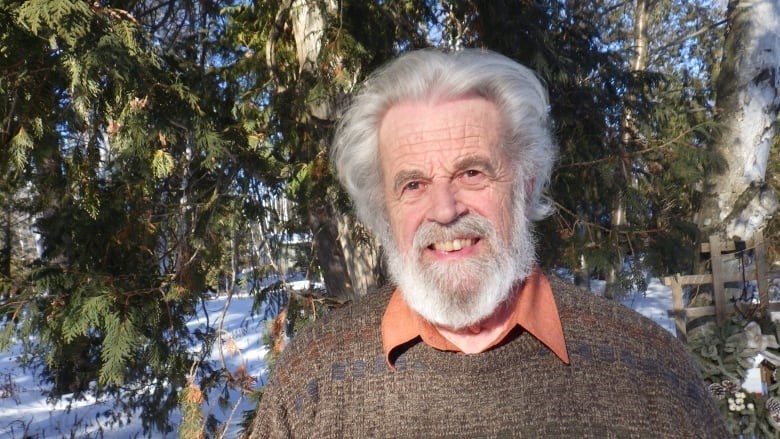David Pearson earned a PhD in Geology from Imperial College in the U.K. in 1967 and arrived in Sudbury two years later for a teaching position at Laurentian University. He taught first year Geology for 30 years, but his interests went far beyond rocks.
David served as founding director of Science North from 1980 to 1986 and played a major role in shaping its emergence as a symbol of Sudbury’s transformation from a bleak mining town to a city Sudburians could be proud of.
In this video, David advises fellow Northerners pursuing projects of a similar scale to not “be afraid of a big idea” and to strive to be different. “Don’t just be a small version of what’s worked somewhere else,” he tells us.
David hosted a Monday morning CBC show called Radio Lab for 14 years and a Mid-Canada Television series with an environmental focus for seven years, inspiring an interest in science and a concern for the environment among the general public. He went on to establish a graduate program in Science Communication in partnership with Science North and Laurentian University that has produced upwards of 200 graduates.
He was also a driving force for the establishment of Sudbury as a centre of climate change research. In this video, David outlines the risks and opportunities associated with climate change and how they will impact municipal officials, economic development officers and entrepreneurs.
For example, longer growing seasons, global warming and the need to reduce carbon emissions will create opportunities for agriculture, clean energy, and new means of transportation to access remote communities that can no longer rely on ice roads. We must also find ways to cope with longer fire seasons and extreme weather events ranging from torrential downpours to scorching heat waves, he tells us.
David believes there is reason for hope because of the rapid development of new technologies, but warns of the dire need for policies and incentives to take advantage of them. “Banks and insurance companies won’t approve loans or insure projects that don’t have a green future,” he predicts.
